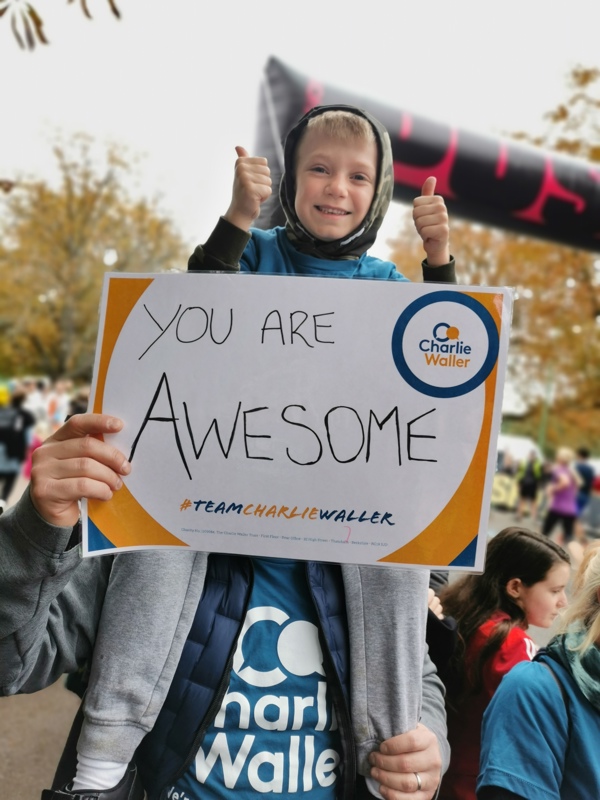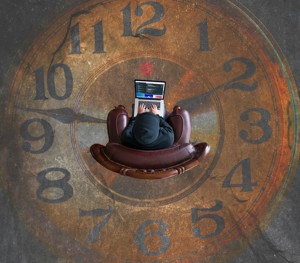Time off work for my mental health - personal story
July 06 2020

She and her line manager Clare have written a joint blog on the experience to illustrate it from both an employer and employee perspective.
Supporting a member of staff through a period of mental ill health: what I noticed and what I learnt
I was initially very surprised when Tracey told me that she could not come in to work as she was suffering from severe anxiety. This was a senior and longstanding member of my team, who I rely on greatly in my role as CEO and who is also key to the ethos and success of the Trust. She is known in the team for her emotional intelligence, empathy and for holding our culture of dedication, warmth, compassion and understanding.
My immediate concern was to offer her the right support as an employer and my understanding and empathy as a colleague and friend. Inevitably my next thought was ‘why on earth did I not spot that she was struggling?’ Having worked in the mental health field for over 30 years and been in contact with numerous clinicians, academics and people with lived experience of mental ill-health I was mortified not to have been aware and supportive much earlier.
I wondered if I had become insensitive to mental health issues? Why had Tracey not been able to tell me earlier that she was unwell? How long had she been feeling like this? I talk very readily about ‘presenteeism’ (being at work when you are unwell and not functioning as usual) at conferences but the reality of a close colleague in this situation hit me hard.
Tracey reassured me that she had experienced anxiety before in her life and had become very adept at masking it. I learnt that if someone does not want you to know about their anxiety, they will not show it to you.
So what next? We spoke on the phone and discussed how Tracey’s anxiety was affecting her; we covered a range of symptoms including loss of appetite, chest pain, inability to concentrate and disrupted sleep. Not to mention the sense of dread you feel at the thought of all the pressing priorities you have at work. I hope I made it clear that we would manage without her while she recovered, for as long as that might take. She may or may not have picked up on the subtext that we are a small, lean team and that I knew we would miss her greatly and was concerned about that. We agreed to speak again the following morning.
After the second day I asked Tracey what she would like me to tell the team. She felt uncomfortable at that point with saying she was off sick with anxiety, so we agreed to stick to a factual part of her illness, namely that she was suffering chest pains and needed to see her GP.

We spoke every morning for that first week, generally very early, in part because Tracey was finding that mornings were her most difficult time. Tracey had complete insight into her situation and was willing and able to talk about things that might help, a little at a time, over the course of several calls. My professional and personal inclination can at times be to wade in with a solution when faced with a problem, be quite directive and make fairly swift decisions. I made a conscious effort to listen, acknowledge Tracey’s symptoms and only make suggestions that were part of a shared understanding of what might help. I was keen to understand if work had been a causative factor. In general, Tracey identifies work as a positive factor in her health and wellbeing. There were other things in her life that she felt were more relevant; however, she had been working extremely hard and it seemed to me this had been a factor.
There was a slight improvement in Tracey’s symptoms in the second week and she had a GP appointment and referral for talking therapy (with a few weeks to wait). We talked about treatment options as part of our regular calls during this time and we were both aware of the NICE Guideline for the treatment of anxiety so were familiar with medication, talking therapy or a combination of both. Also during this second week Tracey decided that she would like to tell the team about her anxiety. She drafted a typically eloquent email that I sent on. She was met with warmth and empathy, and some light touch contact with members of the team followed.
Although I was clear that there was no pressure for Tracey to return to work, we discussed this and she was keen to start a graduated return. We agreed a gradual increase over a period of three weeks after which she resumed her normal working pattern. Support from her GP and the NHS were crucial to this. We kept our regular contact during this time, kept open and clear communication with the rest of the team and my feeling is that Tracey had a well supported transition back to her normal working hours that made it possible for her to reengage with work and start making a positive contribution to the team very quickly.
On reflection I would say that Tracey’s insight, awareness and desire to get back to work were decisive in her ability to recover from the acute phase of her illness and in being able to get back to work so successfully. I hope I may have contributed to this in some way, but really it was all her.
Getting back to work after acute anxiety
How do you tell your boss you’re so anxious you can’t work? I’ve experienced anxiety all my life, on and off, as nameless dread, OCD, constant worry, catastrophising and, thankfully rarely, panic attacks. But I’ve always managed to keep working, even when it’s been a battle.

Sixteen weeks ago, though, my dear friend Nicki died of cancer. I’d travelled the long and painful journey with her and was making regular trips from Reading to Bristol to see her. At the same time, I’d been dealing with some difficult family issues. As we often do, I’d kept going, not realising the toll the stress was taking on my mind. A looming pandemic didn’t help. I found myself in the grip of the most prolonged and acute anxiety attack I’ve ever had.
I shook, my chest hurt, I couldn’t sit still and my mind wouldn’t focus. I couldn’t eat, my voice quavered and all my usual self-help remedies failed. My husband and close friends were worried.
After a few days of this, I knew I had to get professional help, so I referred myself to the local NHS Talking Therapies service who assessed me as having moderate to severe anxiety, and I rang my GP who prescribed medication.
Then I called my boss, Clare, fearful that I would appear weak, spineless and unable to cope with life. The irony of the situation was glaring: not only is Clare the CEO of the Charlie Waller Trust, a leading mental health charity, she is also an understanding, perceptive and empathetic person. Still the anxiety was doing its best to convince me that I would be found wanting.
Nothing could have been further from the truth.

Firstly, I was met with the same sort of sympathy I’d have encountered if I’d had a serious but treatable physical illness. Clare’s tone was empathetic but matter-of-fact; her words conveyed the sense that this could happen to anyone.
Secondly, Clare demonstrated a clear understanding of what moderate to severe anxiety meant, that it needs time and treatment to get better. She offered encouragement and affirmation that I was doing the right thing in seeking help.
Thirdly, she proffered concrete assistance, offering to check in with me by phone every day. Different people will have different needs but this offer was invaluable to me: it helped me to structure my days, to feel I was still connected to my workplace, and to know that I was valued.
Finally, Clare’s approach was a great combination of support and empowerment. She made suggestions and, crucially, asked me what I felt I needed. After a fortnight (I was off work for three weeks in total) I began to feel that I would like to return to work gradually, starting with just two or three hours a day and building up to my usual working pattern over a few weeks. I began with small, discrete tasks and a ban on looking at my email inbox (a guaranteed source of anxiety), and gradually increased the size and complexity of the projects I tackled.
Throughout all this, my other colleagues were wonderfully, sensitively supportive. They sent brief, warm messages by text, brilliantly suitable light reading through the post, and cheering, funny videos by email and WhatsApp. One of our Trustees, whose taste in music I share, even wrote to me suggesting we both compile our ‘Top Ten Dylan Tracks’; a marvellous temporary distraction from the anxiety!
I’ve now been taking the medication for four months, and have had my first three CBT sessions, made possible by the ‘Improving Access to Psychological Therapies’ (IAPT) service. Both are helping enormously and the CBT is giving me techniques which I know will help me manage my anxiety long into the future.
Charlie Waller played a key role in bringing IAPT into being in 2008, funding the research Lord Layard used to persuade the government of the need for it. I am one of hundreds of thousands now benefiting from the foresight and determination of the Wallers in recognising the urgent necessity for wider access to talking therapy.
As a workplace committed to the mental wellbeing of its employees, the Charlie Waller Trust really couldn’t do much better.
Related
Popular
Upcoming event

Are you looking for an active challenge?
We have partnered with Run for Charity meaning we have access to over 500 different active challenges!

The Charlie Waller Trust
The Charlie Waller Trust is a registered charity in England and Wales 1109984. A company limited by guarantee. Registered company in England and Wales 5447902. Registered address: The Charlie Waller Trust, First Floor, 23 Kingfisher Court, Newbury, Berkshire, RG14 5SJ.
Copyright © 2024 The Charlie Waller Trust. All rights reserved.






